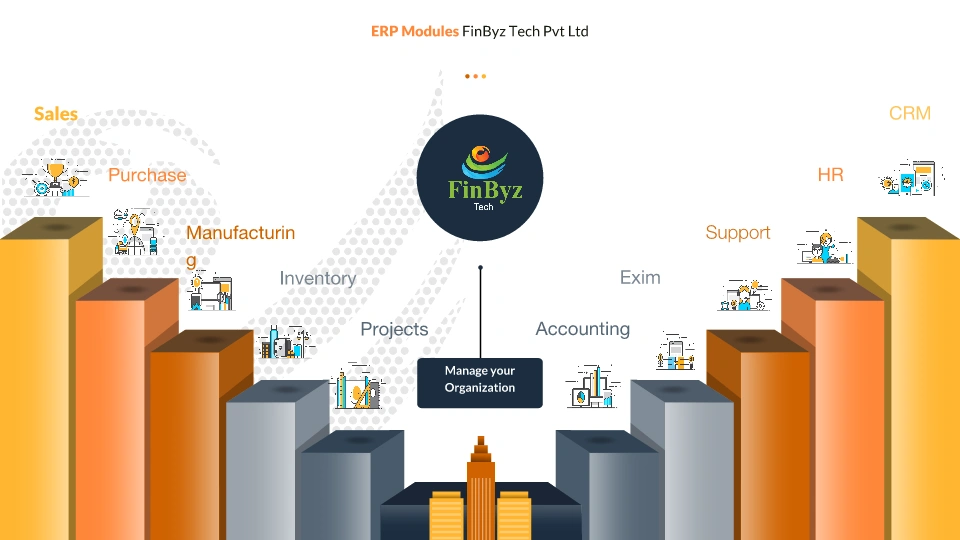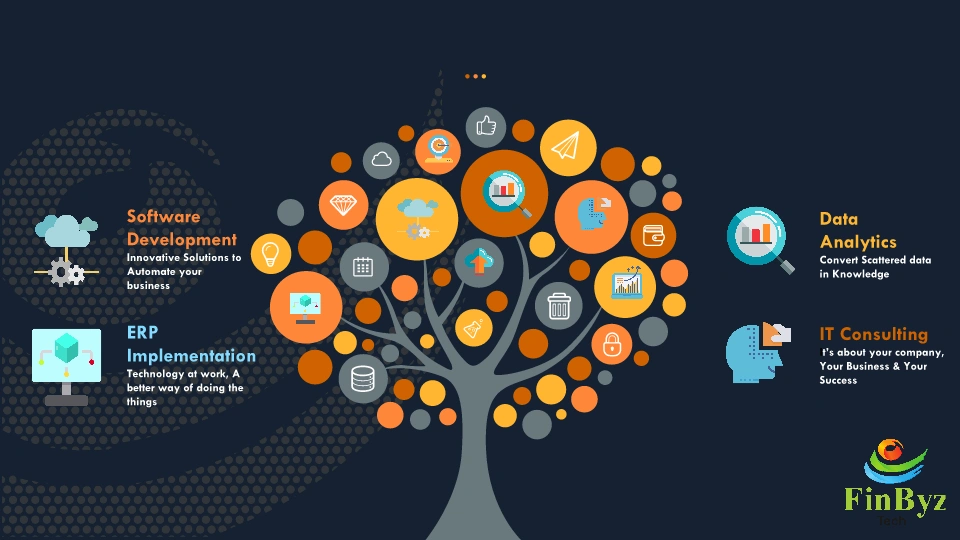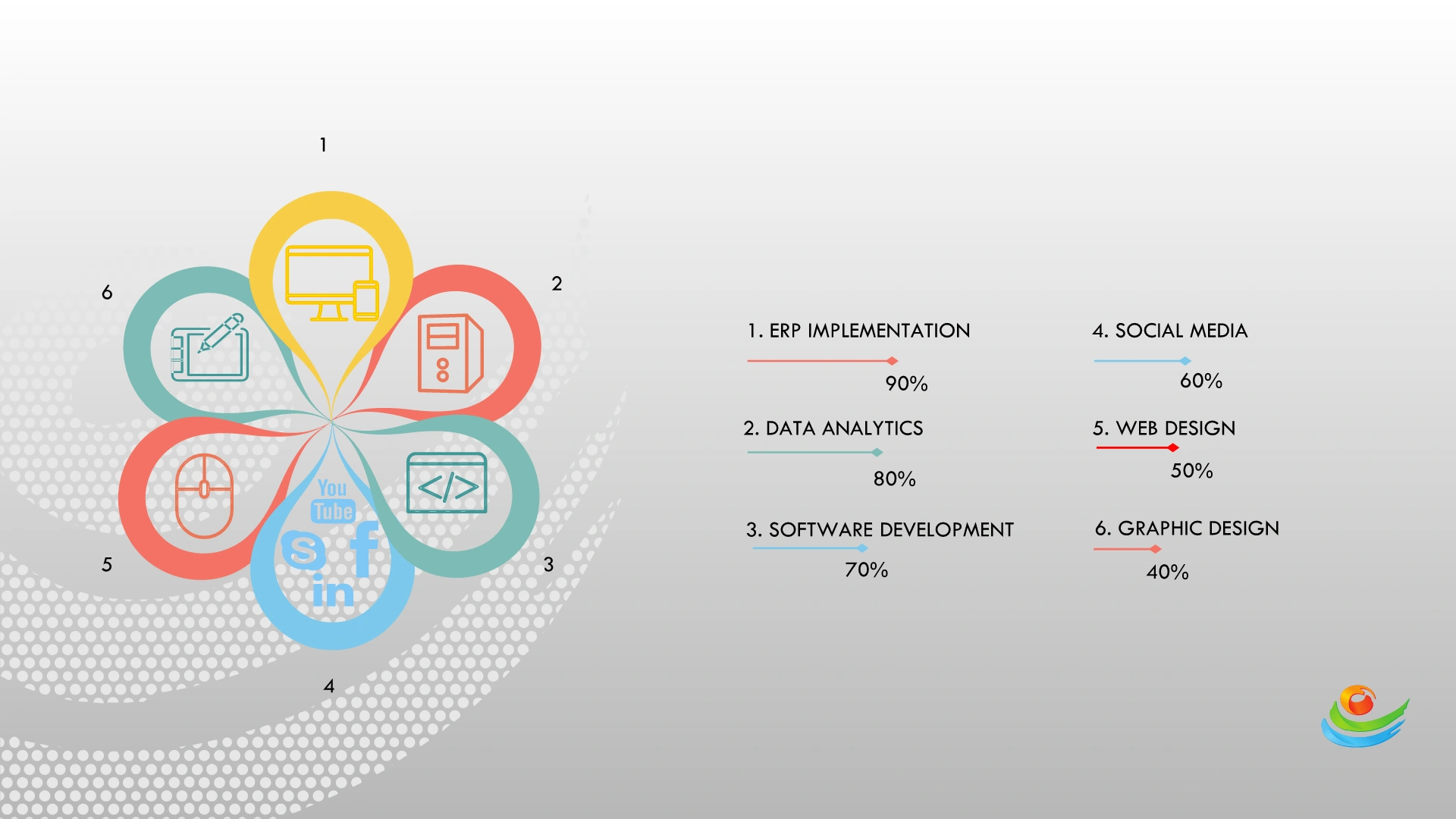Data Analytics
“Without big data analytics, companies are blind and deaf, wandering out onto the web like deer on a freeway.”-Geoffrey Moore
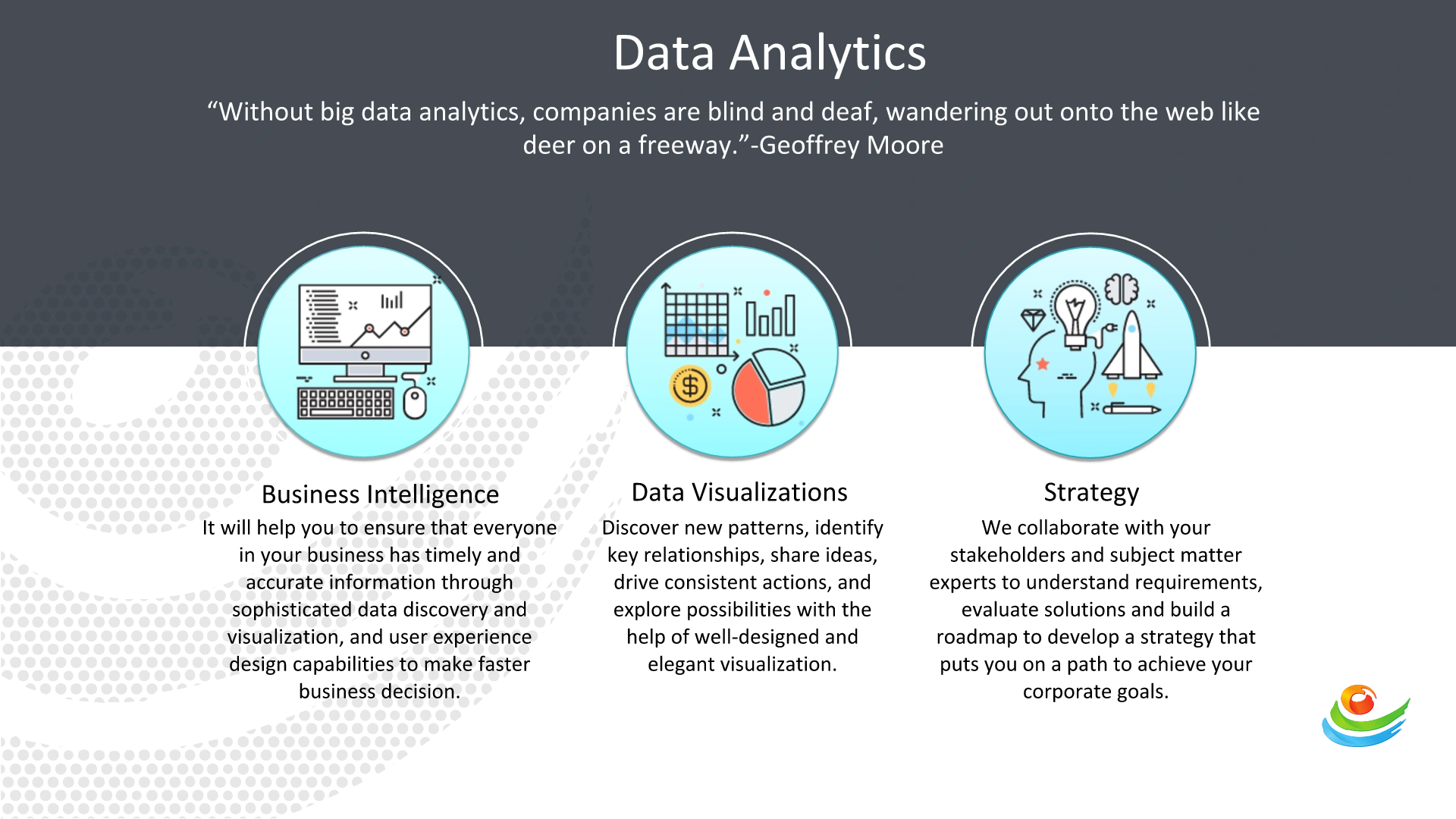
Discover top business intelligence tools and understand the importance of data analytics. Learn how it benefits your business with insights, performance, and growth.
In today's data-driven world, understanding the importance of data analytics is essential to shaping business success and gaining a competitive edge.
Business Intelligence:
A fundamental element of Data Analytics, business intelligence tools provide timely, accurate, and accessible insights across your organization. With intuitive dashboards, real-time data access, and advanced reporting capabilities, BI tools enable faster and smarter decision-making at every level. Empowering users with actionable data helps businesses adapt quickly and stay ahead.
Data Visualizations:
At the core of effective analytics lies data visualization. These visual insights reveal hidden trends, highlight relationships, and turn complex information into easily digestible formats. With the right business intelligence tools, you can transform raw data into compelling stories that drive team collaboration and support consistent, strategic action.
Strategic Analytics Planning:
Developing a strong data analytics strategy starts with recognizing the benefits of data analytics in organizational growth. Collaborating with stakeholders and domain experts ensures that analytics initiatives are aligned with business goals. By identifying key metrics, selecting suitable tools, and crafting a clear roadmap, businesses can leverage data to fuel innovation and measurable results.
By harnessing the benefits of data analytics, you can achieve several significant advantages:
1. Informed Decision-Making: Utilizing advanced business intelligence tools ensures that decision-makers at every level have access to real-time, accurate information. This access enables quicker, data-driven decisions that enhance responsiveness and improve organizational performance.
2. Data-Driven Discoveries: One of the key benefits of data analytics is the ability to uncover actionable insights. With interactive visualizations, teams can easily detect patterns, identify anomalies, and capitalize on untapped opportunities that might otherwise remain hidden.
3. Improved Collaboration: The importance of data analytics extends beyond individual analysis it strengthens cross-functional teamwork. When teams use shared dashboards and reports powered by business intelligence tools, they align on goals, share insights effectively, and foster a unified, data-driven culture.
4. Strategic Planning: Crafting a successful analytics strategy requires a clear understanding of business goals and a collaborative approach. Leveraging the full spectrum of data analytics benefits from performance monitoring to forecasting helps align your data initiatives with long-term objectives and ensures measurable impact.
5. Competitive Edge: To thrive in a dynamic business environment, companies need agility. With robust business intelligence tools, you can track shifting customer demands, competitor moves, and market trends ensuring your organization remains proactive and competitively positioned.
Incorporating powerful business intelligence tools, meaningful data visualizations, and a forward-thinking strategy showcases the importance of data analytics as a business essential. It not only enhances decision-making and collaboration but also unlocks long-term data analytics benefits, enabling sustainable growth in an increasingly data-driven world.
Frequently Asked Questions
Find answers to common questions about our services
Still have questions?
Contact SupportRelated Read

Data Analytics
Data Analytics Company | Finbyz Tech

ERP Implementation Steps: A Comprehensive Guide
Comprehensive Guide to ERP Implementation Steps for Business Success

Enhancing Business Efficiency: The Importance of Systems, Processes, and SOPs
Enhancing Business Efficiency: The Importance of Systems, Processes, and SOPs
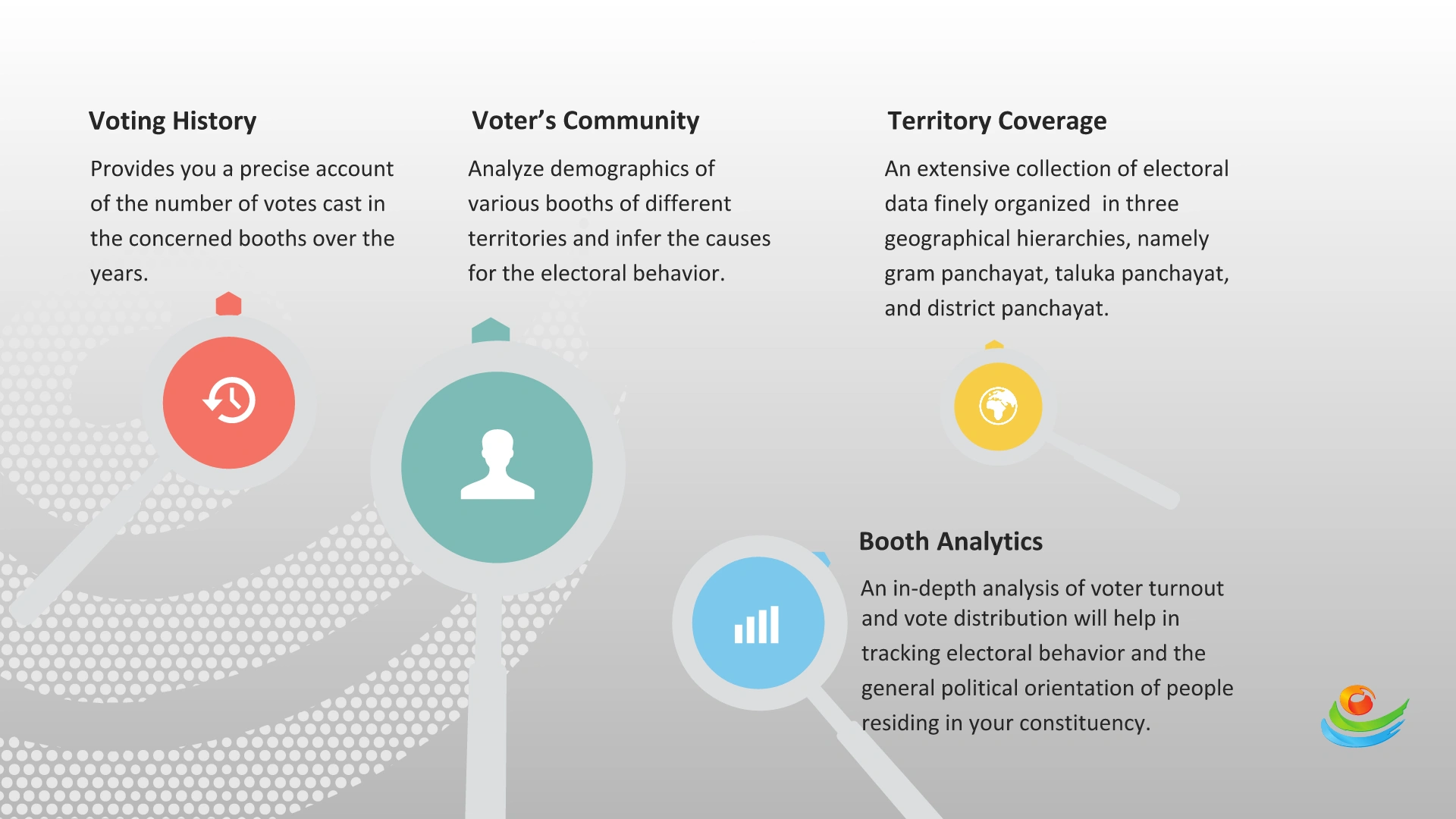

.webp)
.gif)
